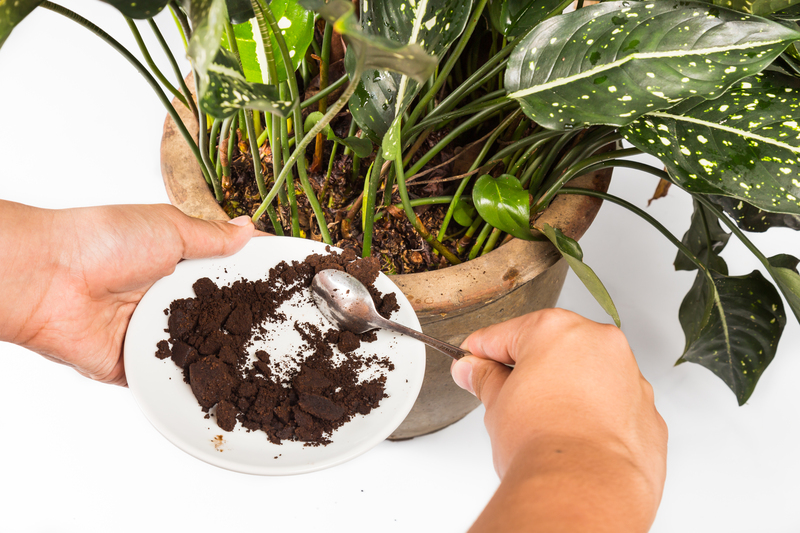How Gardens Aid in Climate Change Mitigation
Gardening is more than just a peaceful hobby or a way to beautify your environment. It holds significant potential in aiding climate change mitigation. With rising global temperatures and increasing greenhouse gas emissions, gardens can serve as small yet effective tools in our fight against climate change. This article explores the multifaceted ways in which gardens contribute to this cause.
Carbon Sequestration
Plants have the remarkable ability to absorb carbon dioxide (CO2) from the atmosphere and store it. Through the process of photosynthesis, plants convert CO2 into oxygen and carbon compounds, effectively locking away carbon that would otherwise contribute to global warming. Trees, shrubs, and even well-maintained lawns in your garden act as carbon sinks.

Reduction of Urban Heat Islands
Urban areas often suffer from what's known as the "urban heat island effect," where temperatures are significantly higher than in surrounding rural areas. Gardens, both private and community, can help cool these urban environments. Plants provide shade and release moisture into the air through a process known as transpiration, which helps in cooling the surrounding area. This cooling effect reduces the need for air conditioning, thus decreasing electricity consumption and the associated greenhouse gas emissions.
Promoting Biodiversity
A well-planned garden can become a sanctuary for various species of plants, insects, and animals. Biodiversity is crucial for resilient ecosystems that can adapt to changes in the climate. By planting native species and avoiding the use of harmful chemicals, gardens can support a wide range of flora and fauna, promoting genetic diversity and ecological balance.
Reducing Food Miles
Growing your own fruits, vegetables, and herbs not only provides fresh and nutritious food but also reduces food miles--the distance food travels from farm to table. Lesser transportation means lower fossil fuel emissions. Home gardens and community gardens can make a significant impact by decreasing the demand for commercially farmed produce, which often involves heavy use of pesticides and fertilizers that contribute to greenhouse gas emissions.
Water Management
Gardens can play an essential role in sustainable water management. Rain gardens, for example, are designed to capture and filter rainwater, reducing stormwater runoff and recharging groundwater. Mulching and composting improve soil health, enhancing its ability to retain water and reducing the need for frequent irrigation. By implementing water-wise gardening practices, you can save water and reduce the energy required to pump and treat water.
Soil Health and Erosion Control
Healthy soil is a critical component in the fight against climate change. It serves as a natural carbon sink and supports plant growth. Gardens, through the use of compost and mulch, can improve soil structure, increase organic matter, and promote microbial activity. This enriched soil sequesters more carbon and helps in erosion control by stabilizing the ground with plant roots.
Renewable Energy and Materials
Using renewable energy sources and sustainable materials in gardening can further enhance its climate benefits. Solar-powered garden lights, water pumps, and even small wind turbines can reduce the carbon footprint of your garden. Utilizing recycled or sustainably sourced materials for garden structures and tools also contributes to reduced greenhouse gas emissions.
Pros and Cons
Pros:
- Enhances carbon sequestration
- Reduces urban heat islands
- Promotes biodiversity
- Lowers food miles
- Improves water management
- Boosts soil health and controls erosion
- Supports renewable energy and sustainable materials
Cons:
- Requires time and maintenance
- Initial setup can be costly
- May require specialized knowledge
- Pests and diseases can be challenging to manage
- Limited impact if not widely adopted
Tips
- Plant native species to promote local biodiversity.
- Use organic compost and mulches to enrich soil health.
- Incorporate rain gardens to manage stormwater effectively.
- Opt for manual tools and renewable energy devices.
- Engage in community gardening to amplify the impact.
- Avoid using synthetic fertilizers and pesticides.

Takeaways
Gardens possess a considerable potential to aid in climate change mitigation. Through carbon sequestration, cooling urban heat islands, promoting biodiversity, reducing food miles, and improving water and soil management, gardens can make a small yet significant impact. However, the benefits are multiplied when more people engage in sustainable gardening practices.
Conclusion
While gardens alone may not solve the climate crisis, they are invaluable tools in the broader strategy of climate change mitigation. By integrating gardens into urban planning and encouraging individual and community efforts, we can leverage their benefits to create a more sustainable and resilient planet. Action at the grassroots level, quite literally, can lead to meaningful change.
By fostering gardens in our communities and homes, we contribute to a healthier planet and create spaces that are enjoyable and beneficial for all living beings.





